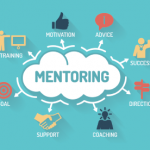
Dr. Rouster-Stevens
The mentor should lead by example and be able to engender enthusiasm by portraying a positive attitude. Experience in leadership roles allows the mentor to foster effective team building with the mentee. Moreover, a mentor should be approachable and collegial, Dr. Warrington says, while encouraging independence without being overprotective.
Dr. Brasington says it’s imperative that a mentor like to share their knowledge. They also need to be able to give frank, constructive criticism and to be honest with the mentee about what is realistic to accomplish.
Along these lines, a mentor needs to have a genuine interest in other people. “I need to understand who someone is in order to help them get to the next step, whether that involves entering academic medicine, clinical practice or something else,” says Philip Seo, MD, MHS, director of the Johns Hopkins Rheumatology Fellowship Program and director of the Johns Hopkins Vasculitis Center, Johns Hopkins University, Baltimore. “A mentor also has to be a fierce advocate for their mentees, even when that leads to making decisions that are unpopular among other faculty members.”
‘Ultimately, both the mentor & mentee have to mutually choose each other by agreeing to enter the relationship & commit to the defined purpose of the mentor–mentee experience.’ —Dr. Koster
Benefits of Having a Mentor

Dr. Seo
The advantages of having a mentor abound. Michael George, MD, fellow, Rheumatology, University of Pennsylvania, Philadelphia, Pa., points out that a mentor has a broad perspective and can be invaluable when developing a research project. “A mentor can help you focus your research interests into an answerable question and provide guidance on whether the project you are interested in is both important and feasible,” he says.
A mentor can also help a mentee gain access to data and other resources that are necessary to complete a project, and can help troubleshoot as a project moves forward. Importantly, a mentor can also use their connections to find other mentors and collaborators that can aid in a mentee’s success.
Finally, Dr. George says, “a mentor can help you look beyond the project at hand and push you to develop the skills, connections, funding and interests that will help you be successful not just in your current project, but in your career goals.”
Dr. Koster believes that having a mentor is an invaluable resource for physicians regardless of their age or level of training. “Mentors have wisdom and insight that they have gained from their successes and failures. These lessons, if effectively passed on to the mentee, can help the mentee to more effectively achieve the former and avoid the latter,” he says. “In addition, knowing that there is someone that cares for you personally and professionally reduces the level of isolation often perceived by trainees and can increase mental well-being, career satisfaction and production. For me, having a mentor that provides reassurance and guidance when I am trying to develop areas in which I have little or no experience allows me to challenge myself further than I would if I were left to my own reservations.” The mentor’s broader scope of vision provides the ability to see above and beyond barriers that mentees may perceive to be larger than they actually are.


